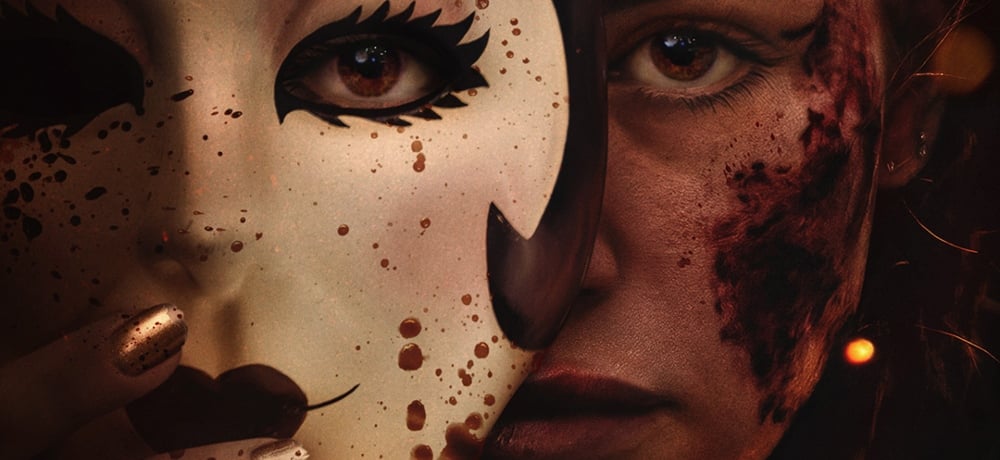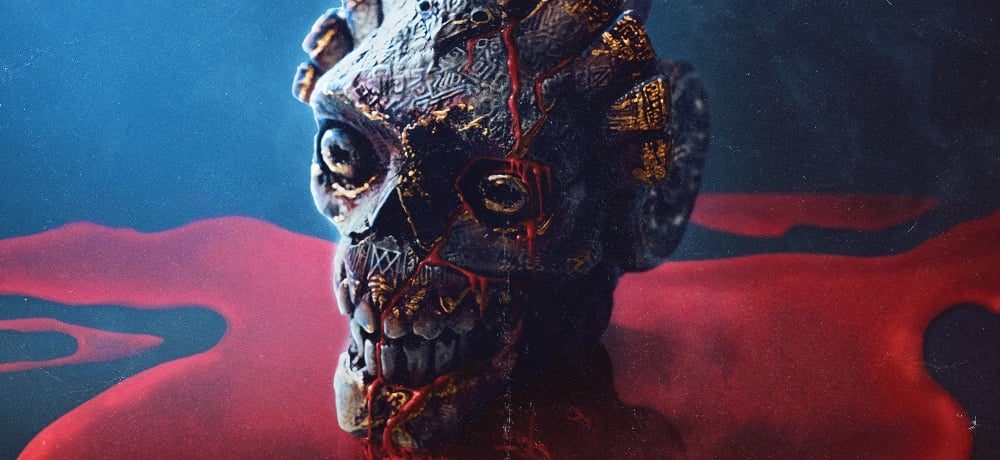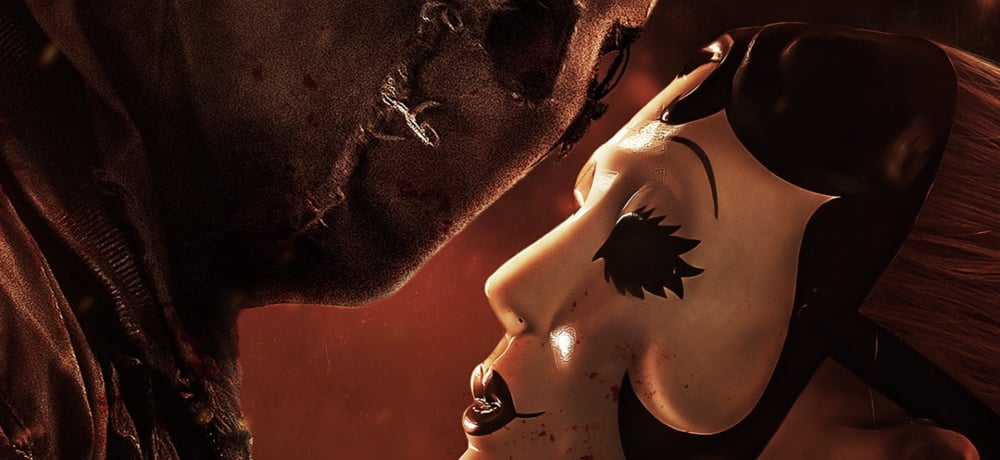





As the only film entry to represent Brazil at the 2017 Toronto International Film Festival, Vicente Amorim’s Motorrad enjoyed much success as part of the fest’s Contemporary World Cinema slate earlier this month. Daily Dead recently had the pleasure of catching up with Amorim to discuss his supernaturally infused moto-horror project that follows a group of dirt bikers who head out to a remote region of Brazil, and are in turn hunted down by a sinister gang of motorcycle riders hell-bent on killing the travelers who have apparently entered an area in which they are not welcome.
During the interview, Amorim discussed the inspiration behind the story of Motorrad, striving to make an unusual horror movie in Brazil, the technical and physical challenges that he and his entire cast and crew were up against during production, and more.
Congratulations on the film, Vicente. How do you feel everything went over at TIFF this year?
Vicente Amorim: I think it was awesome. It was really awesome. I'm so happy. I was almost shocked when the film got selected. It was the only Brazilian film to be selected for TIFF this year. And TIFF is virtually one of the three biggest festivals in the world for film, so to be a movie out of Brazil that gets selected for TIFF was such a huge deal for me. I was really, really happy.
That is awesome to hear. So, let’s talk about Motorrad, and what inspired you to take this route because it feels like a very different movie. In fact, I think during the first 10–12 minutes, there's no dialogue even.
Vicente Amorim: There's no dialogue for 14 minutes exactly [laughs].
So I was close! But I just thought there was a lot of really interesting choices that you made in this film, between the dialogue, the visual style, and with all the ways that you immerse us in this action by the way you guys shot this.
Vicente Amorim: The idea, not the script, but the idea was brought to me by the producer, L.G. Tubaldini [Jr.], around two years ago. What he had was a very basic storyline for a film about dirt bikers being chased by something. He didn't even know what it was it back then. He is a dirt biker himself, so that's where his inspiration came from. And I'd been trying to make a horror film for 20 years. This is my seventh feature, but it's my first 100% genre film. I have sort of flirted with genre in a couple of my other movies, but it's the first one that is 100% genre. So when he approached me, I was like, "Where do I sign?" Of course I wanted to do this.
We started working with Bayão, who is the screenwriter and another very important part of the team was Danilo Beyruth, who is actually the Brazilian graphic novelist who's also a Marvel staffer. He does Ghost Rider and a bunch of other things for Marvel. He was very important to us in creating the characters and setting some of the moods that we wanted. With the resources we had down here to make any kind of movie, if you're going to make a genre film, it's gotta be different, it's gotta feel different, it's gotta be very original. Because what we're fighting against is double-digit million dollar Marvel films or even the Annabelles and The Conjurings of the world, which have like 10 to 20 times as much money than we do to make the same sort of movie.
So what we decided is that we're not making that kind of movie. We're going out for something completely different. We wanted the psychological element to be a centerpiece in this film. We managed that by combining the idea of solitude, coming of age, and the basic loneliness of the Hugo character. We drew a lot from my very first film, which is a social drama called The Middle of the World. In structuring the script, I mirrored the structure I came up with in The Middle of the World, which is a story of a family that travels by bike looking for a job and fighting poverty and hunger and whatnot. Only this time, it's not really a family, it's a group that still has sort of a family dynamic in it. The enemy they're fighting is maybe allegorical, but much more real and more tangible. We wanted the audience to feel the same kind of fear that Hugo and his friends feel on the trail once they face this faceless crew of machete-wielding spectral bikers.
It took us a year and a half to actually to come up with the final script. It took us several trips down to Serra da Canastra, which is this very isolated region of Brazil where we shot the film. It makes the setting part of the film itself, where the elements and the nature had to be as big an enemy or part of the same enemy that these four spectral bikers are.
I didn't wanted to strip the film off of any references to the usual kind of horror that you get in normal ghost movies or demonic movies that are very linked to Christian myths, like upside-down crosses and whatnot. We wanted the bikers to be the incarnation of fear itself. What are they? They're the picture of fear. It may sound all very complex, but actually, if you look at it, it's a very simple, straightforward horror biker film with that psychological undertone to it. We wanted it to be structurally simple. That was something that we decided from the very onset, and that was fundamental for the film to make sense. We see so many of these genre films nowadays that are tripping over themselves and outsmarting themselves with script trickery, so to speak, so we decided we would stay away from that and be absolutely straightforward.
You mentioned Motorrad doesn't really feel like horror right now, which it doesn't, but what’s funny is that a part of this reminded me of The Wraith, which is this cult film from the 1980s. That made Motorrad so much more fun for me, because this feels like a modern, stripped-down version of parts of that film.
Vicente Amorim: Yes, it is. Bingo, there you go. I wasn't telling anybody about that, but you got me [laughs]. It is still tricky to tell people what your references are because, obviously, that opens a can of worms of comparisons and parallels and so on. But you're right on the spot. There's some of that film in this, and there's some of a couple of other movies that you might have intuitively realized, too.
Obviously, technology was a huge asset to you guys when making Motorrad, and I think it's interesting because 10 years ago you would never have been able to make this movie this way.
Vicente Amorim: Exactly. Again, when people ask me how we made this movie, I say, "This movie is a product of the digital age." I've been making movies for almost 20 years now as a director, and when I had my first horror project like 20 years ago, nobody wanted to touch it. First, because especially down here in Brazil, genre seemed like something that "serious directors" shouldn't touch. Also, because it would be technically impossible to do a film like this if I had to worry about how much film stock I was using. If I had to attach actual film cameras with magazine and film in them and big lenses to the motorbikes, of course it would be possible 10 years ago, but it would take probably a $20 million-plus budget for it to happen.
So, it was only because it was a fairly inexpensive film to make that it was made, because traditional producers—and L.G. Tubaldini, Jr. is not a traditional producer, thank God—would never put serious money into something like this. He took the risk and it's paying off. It started paying off the minute the film was selected for TIFF, which just proved how right we were to something that felt so risky, that so many people down here in Brazil told us we shouldn't even waste our times and our effort with.
But it was grueling to shoot this. We shot it out in the pits. We had to climb down cliffs. We had to travel for over two hours on 4x4s. We had to hike for another hour to get to the right kind of location on many days. Because this kind of place where we shot, the world is running out of this kind of place. It's not like you travel for a couple of hours and you find it. No, you've got to get on a bus, get on a 4x4 and hike and climb down a cliff to find it. The conditions were grueling, but we—myself, the crew, the cast, and the producers—all decided to face the challenge and I just feel so happy that we did.
It was one of the hardest movies I've ever made in my life, but it's also one where I had the most fun shooting, editing, scoring, and everything. It was really, for me, a liberating experience because it just shows that it pays to make—whatever happens now, and things are happening for the movie, it's being sold, people like it, we got great reviews—it just shows that it pays to make this kind of movie. We're opening a new realm of possibilities for the genre down here, too, with this film, because it is so original. It was just so liberating for me to make this movie, and I want to do more of it.